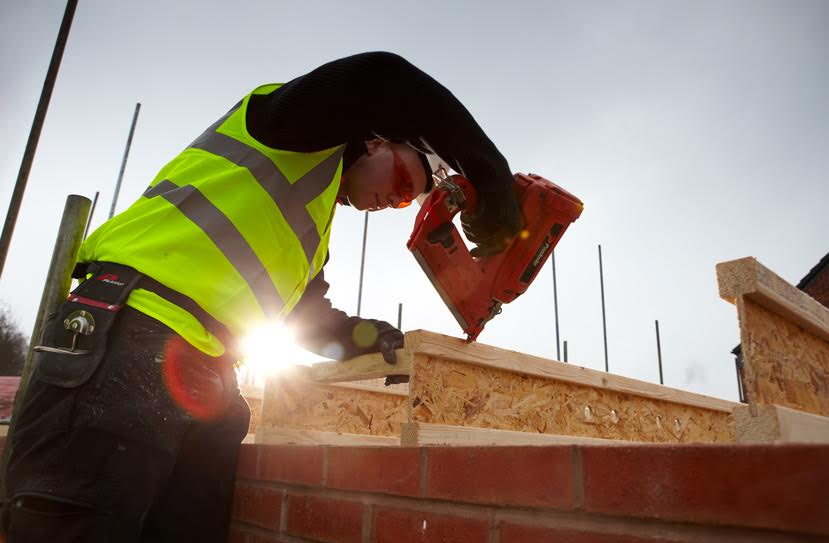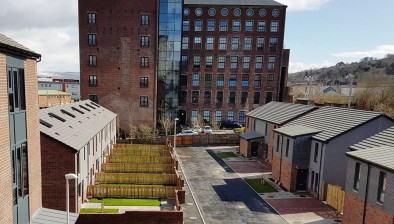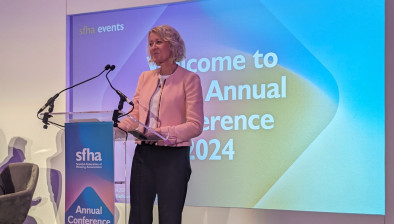Proposed £3.3bn funding for next Affordable Housing Programme welcomed
The Scottish Government’s £3.3 billion funding proposal for the next Affordable Housing Supply Programme will help to “make a real difference” to tackling housing need in Scotland, the Scottish Federation of Housing Associations (SFHA) has said.

The newly-published Infrastructure Investment Plan (IIP) 2021/22- 2025/26 sets out spending plans for affordable housing supply, energy efficiency and decarbonisation of heat.
As part of its aim of ‘Building resilient and sustainable places’, the IIP has proposed that more than £3.3bn is allocated over the next five years to “deliver more affordable and social homes, helping to create great places, and continuing to ensure the right types of homes in the right places to support Local Housing Strategies and regional development priorities”.
Together with CIH Scotland and Shelter Scotland, SFHA has been campaigning for the Scottish Government to commit to delivering 53,000 affordable homes, including 37,100 for social rent, between 2021 and 2026. The three housing organisations had called for this to be backed up by funding of at least £3.4 billion to allow social landlords to build the homes to the required building and energy efficiency standards, while keeping rents affordable.
Further funding may be made available through the UK Government’s budget in March. SFHA has called for for the UK Government to confirm Scotland’s Financial Transactions funding, and, if further support is made available, for the next Scottish Government to increase the £3.3bn in order for social landlords to be able to deliver the 53,000 affordable homes that Scotland requires over the next five years.
SFHA is also calling for the Scottish Government to carry out an urgent review of grant subsidy levels, before May’s Scottish Parliament election, in order to ensure that social landlords can deliver as many affordable homes as possible, with the ultimate target of 53,000. SFHA said that, with costs of construction rising and social landlords expected to meet new higher building and energy standards, the review would be critical to ensuring the homes can be built to the scale, type and quality needed as well as in the locations required.
SFHA chief executive Sally Thomas said: “We welcome the Scottish Government’s proposed funding of £3.3bn for affordable housing during the next parliament – this will help to make a real difference to tackling need, and we will be looking for this to increase in the next parliamentary term if we are to deliver the 53,000 homes Scotland requires. Our research with CIH Scotland and Shelter Scotland found this will require investment of at least £3.4bn in order to ensure social landlords can build these homes, and to the required energy and building standards, while being able to maintain affordable rents for tenants.
“While a record number of homes have been delivered over the course of this parliament, progress must be maintained at a level which meets, and does not increase, housing need. The recent Social Renewal Advisory Board report made recommendations for a fairer and more equal post-pandemic Scotland, central to which is making sure everyone has access to a safe, warm, affordable home. The next Scottish Government can help to realise this by ensuring that social landlords have the funding they need to deliver the affordable homes Scotland requires between 2021 and 2026.”
Sally Thomas added: “It is welcome that £100 million will be made available to social landlords over the next five years as part of the Social Housing Net Zero Heat Fund. However, this is only a small proportion of the investment needed to bring social housing stock up to the required energy standard. The government’s own research has shown that complying with the Energy Efficiency Standard for Social Housing Two could cost at least £3.7bn to bring half of Scotland’s social housing stock up to this standard.”
Ms Thomas concluded: “We are disappointed that the government hasn’t increased the adaptations budget as our own research has identified a funding gap of £7m a year. Addressing this will realise significant savings in other budget areas, such as health and social care, and allow people to live safely and well in their own homes for longer.”
Callum Chomczuk, national director, CIH Scotland, said: “While we are pleased that funding for affordable housing has been maintained at approximately the same level we have seen over the last five years, this constitutes a real terms cut in funding. This comes at a time when social landlords are expected to invest significantly in improvements to existing homes and continue building new homes to higher standards of space and adaptability, energy efficiency and connectivity while keeping rents affordable.
“The reality is that the £3.3bn outlined in the Infrastructure Investment Plan will deliver fewer homes, poorer quality homes, or require social housing tenants to make up the shortfall through rent increases.
“We look forward to working with the Scottish Government to explore how the housing sector can work more creatively to deliver the homes we need and how we might lever in the additional funding required to achieve this. If we are to tackle homelessness, reduce poverty and meet climate change targets, we need to invest in housing and we must deliver 53,000 social and affordable homes over the next five years.”





















